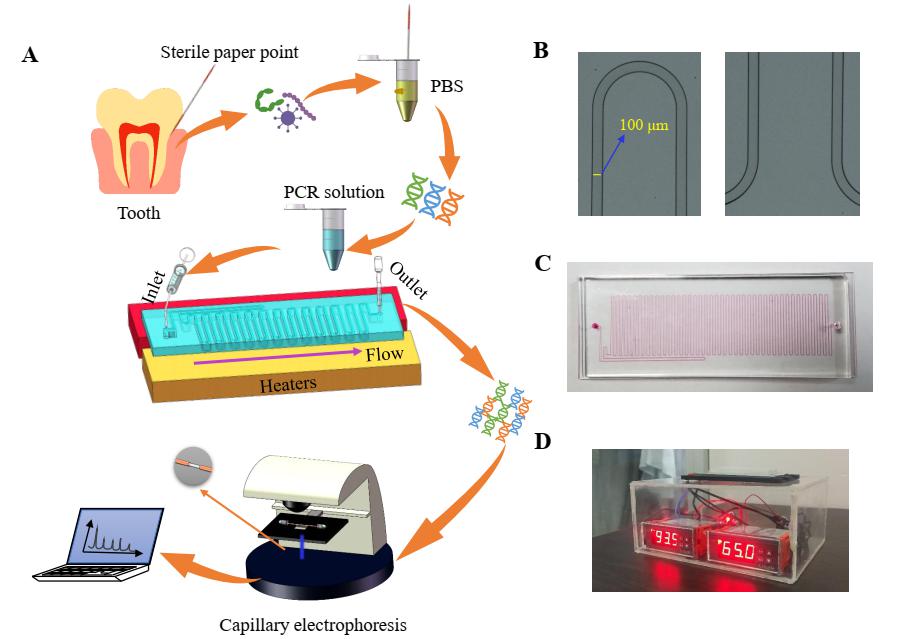Recently, led by Academician Zhuang Songlin, the Ultra-precision Optical Team from Future Optical Laboratory made progress in the multiplex amplification of target genes of periodontal pathogens of continuous flow PCR microfluidic chip. Relevant achievements were published in SCI journal Lab on a Chip. Dr. Li Zhenqing and Liu Jiahui were the first author, and Professor Zhang Dawei and Professor Yamaguchi Yoshinori were the corresponding author.
Periodontitis is a chronic inflammatory disease that occurs in the gums.1 It not only can induce tooth loss, but may also affect a patient's systemic health and increase their risk of atherosclerosis, adverse pregnancy outcomes, rheumatoid arthritis, aspiration pneumonia and cancer.2,3 Research has revealed that periodontal pathogens (e.g., Porphyromonas gingivalis (P.g), Treponema denticola (T.d), and Tannerella forsythia (T.f)) are the main causative agents of periodontitis. Therefore, early diagnosis of those periodontal pathogens is quite important for periodontal disease control.
The team designed a system based on a CF-PCR microfluidic chip for the multi-PCR of periodontal pathogens, and systematically investigated the factors that may affect the PCR efficiency. This device can reduce the time for the detection of periodontal pathogens, and will be of great value for the diagnosis of periodontitis.

Link to the paper: https://pubs.rsc.org/en/content/articlelanding/2021/lc/d1lc00457c/


